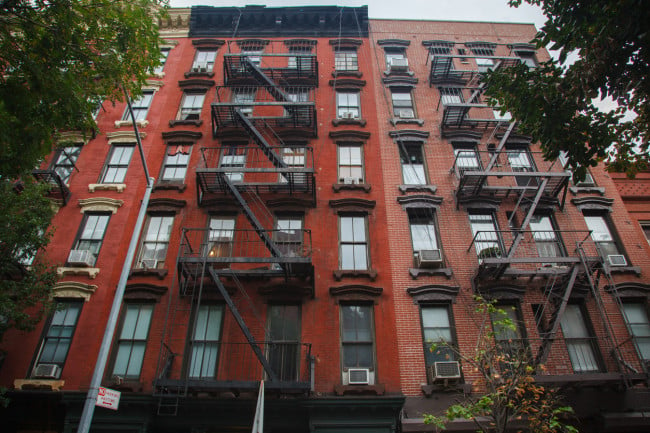Ask Altagracia: My landlord hasn’t refunded my security deposit. What’s my next step?
- Landlords must return deposits within 14 days or forfeit any deductions
- Send a certified letter warning of legal action and possible treble damages

Make sure you have provided the landlord with a forwarding address or a means of returning the deposit to you.
iStock
Ask Altagracia: It’s been more than two weeks since I moved out of my apartment and my landlord hasn’t refunded my security deposit. What’s my next step?
You are entitled to your security deposit, minus any itemized deductions, within 14 days of vacating a market-rate apartment. “If you moved out and it’s been 21 days and the landlord has said nothing, they have to return the deposit in full,” said Altagracia Pierre-Outerbridge, attorney and founder of Outerbridge Law representing residential tenants, condo owners and landlords. Rent-stabilized apartments are not governed by the same 14-day rule but landlords are still expected to return the deposit within a reasonable timeframe.
Make sure you have provided the landlord with a forwarding address or a means of returning the deposit to you. Your next steps will be communicating with the landlord to demand the deposit. You can also file a complaint with the New York Attorney General's office and move forward with a case in small claims court.
Landlord and tenant move-out requirements
New York State’s General Obligations Law outlines what a landlord must do to return the security deposit for an unregulated apartment. If you give at least two-weeks’ notice, your landlord needs to inspect the apartment from 14 to seven days before your move-out date.
“In that window, they must give you an itemized list of any damage they intend to withhold from the security deposit,” Pierre-Outerbridge said. This gives you a chance to fix any breakages, if you want. “You can then make a decision whether you’d rather make the repairs yourself or let the landlord deduct the cost from the deposit,” she added.
The deposit cannot be withheld for normal wear-and-tear or anything that pre-dates your tenancy.
On the day you leave, you should have a meeting with the landlord where you hand back the keys and get a receipt for them. This avoids any confusion about whether or not you have formally moved out. If the landlord does not know if you have officially left, they may request an additional rent payment. You are not supposed to use the security deposit as the last month’s rent.
Once you’ve moved out, the landlord has 14 days to tell you how much of the security deposit they are withholding and why. Within that timeframe they must also send you the rest of the deposit. “If the landlord fails to follow these steps, the law says they are no longer entitled to anything from the deposit,” Pierre-Outerbridge said.
What to write to your landlord
If an email following up on the status of your security deposit goes unanswered, you can send a letter by first class and certified mail to the landlord’s address identified in your lease.
Your letter should state that you haven’t received your security deposit, include the date you moved out, and note that the deposit was due within 14 days of your departure. “You can add that this law provides for treble damages for a willful violation,” Pierre-Outerbridge said.
Explain that you reserve all rights and if you don’t receive the deposit within a week—or less if it is a digital payment—you will consider it a willful violation. You can also say you plan to file suit in small claims court for the funds.
Filing suit to get your deposit
Small claims court is designed to provide an affordable way to resolve civil disputes involving money. In New York City the maximum amount for claims is $10,000. The process involves filing paperwork and paying a small fee.
“You won’t get a court date right away,” Pierre-Outerbridge said. However, you can send a courtesy copy of the filed papers to your landlord, which may be the necessary prompt to get your deposit back. If you sue, the burden of proof is on the landlord to show they followed the law and made reasonable deductions.
You can also file a complaint with the Attorney General’s office. The Bureau of Consumer Frauds and Protection offers an option for recovery through mediation services.
Altagracia Pierre-Outerbridge, Esq. is the owner of Outerbridge Law P.C, focusing primarily on tenant representation. The firm represents all sides in landlord-tenant litigation and transactional matters such as month-to-month holdovers, nuisance cases, licensee cases, harassment claims, repair cases, tenant buyouts, succession claims, DHCR overcharges and rent reductions and more. Pierre-Outerbridge has 15 years of experience litigating in Supreme, DHCR, and Housing Court. To submit a question for this column, click here. To contact Outerbridge Law P.C. directly, call 212-364-5612 or 877-OUTERBRIDGE, or schedule a meeting today.
You Might Also Like


























